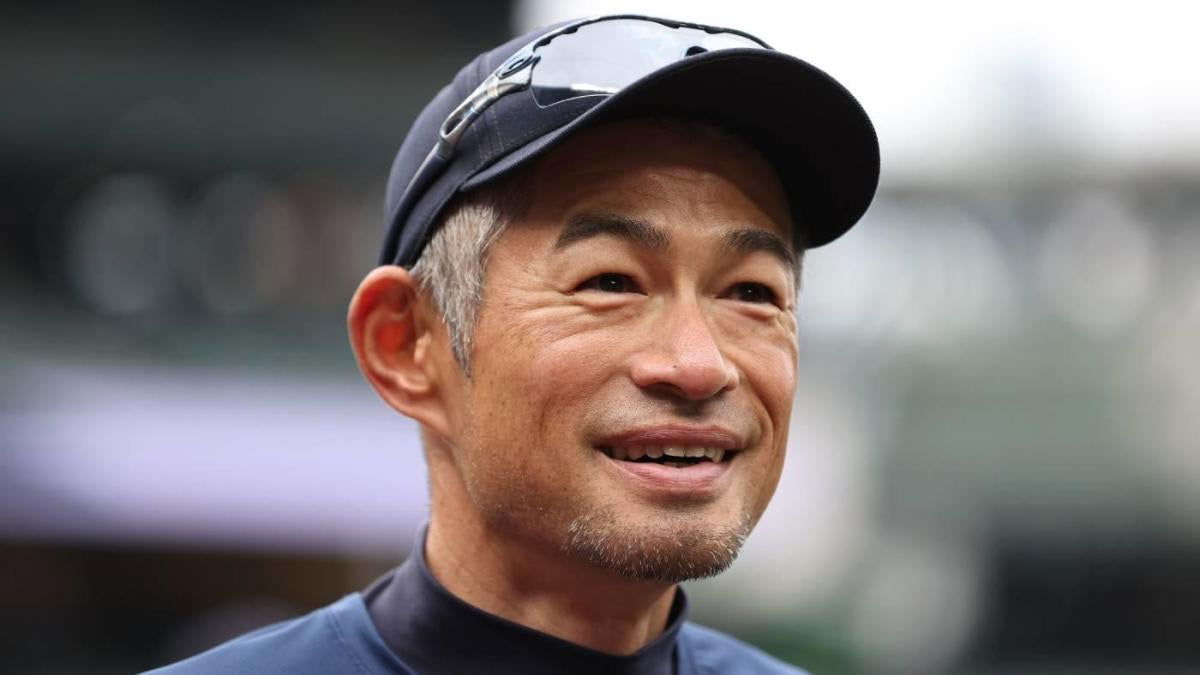

Ichiro Suzuki—just his name brings a smile to baseball fans. This legend, born on October 22, 1973, in Kasugai, Japan, broke records while redefining what it meant to be a hitter. Starting out with the Orix Blue Wave in Japan’s Pacific League, Ichiro’s early days weren’t a fairy tale. His manager at the time wasn’t a fan of his quirky, pendulum-like batting stance. But once a new manager gave him the green light to swing his way. And the rest was history. In 1994, Ichiro hit an eye-popping .385 with 210 hits—breaking the single-season record in Japan—and started a seven-year streak of winning Pacific League batting titles.
Watch What’s Trending Now!
Ichiro’s arm in the outfield and his ability to hit runners from the right field with accuracy – well, that’s something that can make most throwers envious. He made baseball appear effortless by fusing speed, skill, and power in ways that had never been seen before. The 1973-born was a left-handed batter who threw right-handed. Ichiro was the first non-pitcher to move from Japan’s professional leagues to Major League Baseball, and his move was revolutionary. Not only did he thrive in the United States, but he swept the country, eventually breaking the all-time hit records in both leagues.
ADVERTISEMENT
Ichiro Suzuki’s Japanese stint and Iconic MLB Debut
Ichiro Suzuki’s baseball journey started long before his remarkable MLB career. Originally he had an unorthodox stance. His front foot flexed before it slid back and forward for a more powerful swing. This move was not always welcome. This is even true when he was with the Orix Blue Wave, his manager was actually very much against this technique. Perhaps because of that resentment, Ichiro was a bench warmer for most of his first two seasons in Seattle. However, in 1994, a new manager for the company decided to give him a trial, letting Ichiro swing. The outcome?

ADVERTISEMENT
An almost revolutionary year that saw him establish a new standard for Japanese baseball. Ichiro Suzuki batted .385 for the season and was as high as .400 during the campaign. That year Suzuki hit 210, which gave him the Japanese Pacific League record for most hits in a season. Ichiro’s rise from that position was meteoric, indeed. By 2000, this player rightfully took seven straight batting crowns and a lifetime batting average of .353! Ichiro wasn’t really a home run hitter like Shohei Ohtani and Aaron Judge but his speed and batting techniques were something to admire. Beginning 2000, Suzuki was poised for the United States operation.
ADVERTISEMENT
How he paved the way for Japanese Stars including Shohei Ohtani
Sure we now have Shohei Ohtani dazzling the world but it wouldn’t be possible had there been no Suzuki. The 27-year-old rookie came to Arizona in February 2001 to change people’s perceptions, and boy did he! Doubts were lingering. Would a Japanese position player be successful in MLB? Ichiro proved what is what! The player slashed his way to 242 hits, 56 stolen bases, and a.350 batting average in his debut season. Then came the awards – Silver Slugger, MVP, Rookie of the Year, All-Star, and Gold Glove, whatnot! Did we also mention that he was only starting out?
Top Stories
Toronto Loyalist Raises Alarm as Shocking Bo Bichette Update Puts Blue Jays’ 2026 Dreams on the Brink

Mets Become Leading Contender For 30YO Ex-Phillies Star after David Stearns’ Mega Offseason Misses, Per Insider

$275M Cardinals Star’s MLB Future All but Sealed as U.S. Sportscaster Asks $2.75B Team to Make Bold Move

Red Sox’s Alex Bregman Fallout Becomes Evident as Two MLB Rivals Ignite Fierce Bidding War, per Report

Blue Jays-Dodgers Suffer Bitter Snub As $4B NL West Rival Given Edge In Race For 28YO Cardinals Star


Getty
TOKYO, JAPAN – MARCH 21: Outfielder Ichiro Suzuki #51 of the Seattle Mariners grounds out in the 8th inning, last plate appearance, during the game between Seattle Mariners and Oakland Athletics at Tokyo Dome on March 21, 2019 in Tokyo, Japan. (Photo by Masterpress/Getty Images)
He dominated for the next nine years, earning gold and being named to the All-Star team. But it seems his story has still pages to unfold. The Japanese player is getting ready for another accolade. The Hall of Fame. Ichiro’s career serves as a model for how skill, heart, and willpower can transform the game, from his debut as a rookie not expected to succeed to his being the first Japanese player to be inducted into the Hall of Fame. When Ichiro returns to Cooperstown in 2025, it would be a victory both for Ichiro and for baseball itself. Ready to witness the legend?
ADVERTISEMENT
Ichiro Suzuki’s Hall Of Fame bid and impact on baseball
Now that Ichiro Suzuki is on the Hall of Fame ballot, it is the best time to analyze a career that even shaped the future of the sport. This is well over five years now since he last played, the game saw the Mariners prepare to battle with the A’s in the Japan Series. The 45-year-old got one last chance to play in front of his home-country fans, and when he announced his retirement, the baseball world stopped spinning. From the final game, he did not even hit the ball – he was 0 for 4; yet that did not ruin his reputation. For those who did not see it, it was love from the fans, from the teammates and from the legend, Ken Griffey Jr. that made many realize how much Ichiro had contributed to the game.
ADVERTISEMENT
Suzuki Ichiro’s career is full of moments, proving how amazing a baseball player he was. He had a record-breaking season of 2004 with 262 hits in a single season making history by suiting George Sisler’s record of 84 years of the most hit records in baseball. On September 23, 2010, he joined the 200-hit club for the 10th season in MLB. Even when he returned to Japan in 2012, he had four hits in the Opening Day triumph at Tokyo Dome. On August 7, 2016, Suzuki was the 30th in MLB history to hit the milestone when he scored a triple off Chris Rusin, a Rockies reliever, for the 3,000th hit in the major leagues.
Ichiro’s right arm took ten consecutive Gold Gloves between 2001 and 2010. In his first year, he brought the ‘cannon’ out and fired “The Throw” from right field to get Terrence Long of the A’s at third. Do you also see how consistent Suzuki was in all those years?
Now, fast forward to 2025, and the Japanese player will be an automatic lock for the Hall of Fame… And once the ballots are counted, the man with over 4300 career hits (combined Japan and MLB) might be enshrined in the Cooperstown hall. Seems pretty sure!
ADVERTISEMENT
The only real question remains: how near to 100 percent vote?
ADVERTISEMENT
ADVERTISEMENT
ADVERTISEMENT

